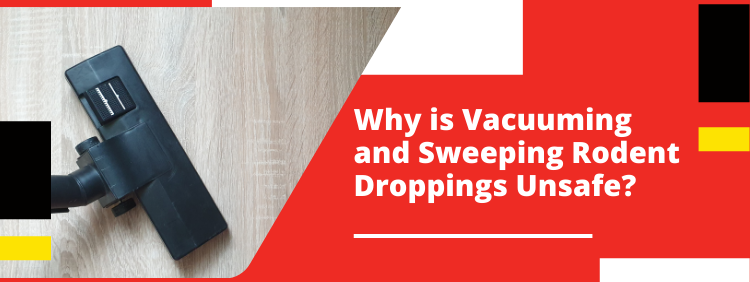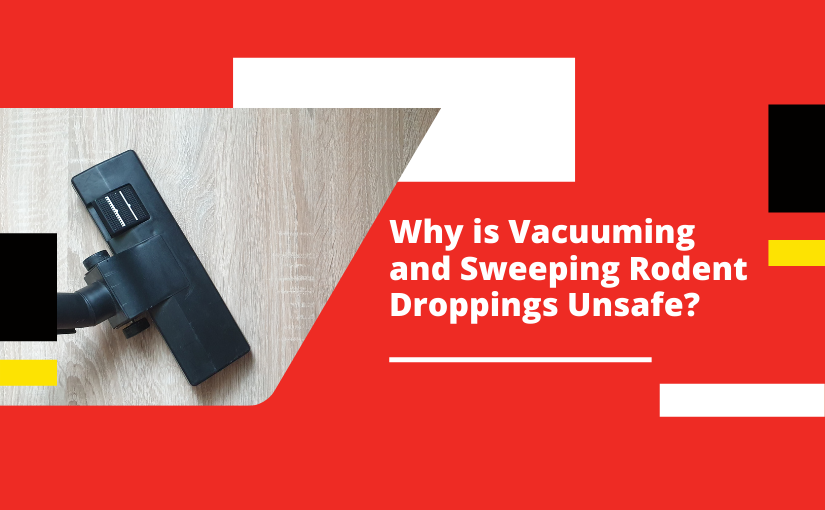
Among the many dangers of having rodents such as mice and rats in your home is that they can spread disease. Rodent removal in Bridgewater is only one step in mitigating the risk. Once the rodents are gone, you have to clean up the droppings that they have left behind. You cannot just sweep or vacuum up rodent droppings. The droppings themselves may contain disease-causing pathogens, so you have to be extra careful.
What Diseases Can You Get From Rodent Droppings?
Rodent droppings contain bacteria such as Salmonella and Leptospira, as well viruses such as hantavirus. If rats or mice tread in their own excrement and then walk over food, you could become infected when you eat it. Nevertheless, as bad as salmonellosis and leptospirosis can be, they can be treated with antibiotics. There are no medications known to be effective at treating hantavirus, and since it can be life-threatening, prevention is vital. Having a frequent rodent inspection of your home helps identify incursions by rats or mice early, making removal and decontamination easier.
Why Is It Unsafe To Vacuum or Sweep Rodent Droppings?
Because of the difficulty involved in treating it and the high mortality rate, hantavirus may be the most serious rodent infection that you may be exposed to. The main route of hantavirus transmission from rodents to people is the aerosolization of the virus from urine and feces. When the virus becomes airborne, it is possible to become infected by breathing it in. Sweeping or vacuuming the droppings causes them to break apart, stirring up dust into the air. If inhaled, the dust particles may make you or members of your family sick.
How Can You Clean Up Rodent Droppings Safely?
While it may seem counterintuitive, you do not necessarily want to clean up rodent droppings right away. If they remain undisturbed for a while, there is less chance of the virus becoming aerosolized. Viruses don’t live very long outside of a host body, so leaving the droppings undisturbed for a week or so may reduce the risk that they will still be active. However, if you find the droppings in an area of the house that sees frequent traffic or on an object that you use daily, you may have to clean them up sooner.
Before you start cleaning, ventilate the area by opening doors and windows in the room for about 30 minutes. Leave the area during this time. This gives the air currents a chance to remove any aerosolized viruses from the room before you start cleaning.
Wear protective gloves made of latex, vinyl, or rubber while cleaning up the droppings to prevent direct contact with the skin. Start by spraying the droppings with a disinfectant. You can use a general household disinfectant, or make an antiseptic solution of your own by mixing nine parts of water with one part bleach. After letting the solution soak for at least five minutes, wipe up the droppings using a paper towel. Mop up the area using the same solution. Place the used paper towels, mop head, and gloves in a sealable plastic bag, taking care to wash your hands with the gloves on before removing them. Seal the bag and throw it away in a garbage can with a lid. When finished cleaning up the droppings, be sure to wash your now-bare hands with soap and water.
If the droppings are on a hard surface other than the floor, you can use a sponge to clean it rather than a mop. Dispose of the sponge in the same bag with the paper towels and the gloves. Clothing or bedding contaminated with rodent excrement needs to be washed in hot water, while carpets or upholstered furniture need to be shampooed or steam cleaned.
Truly Nolen’s Nova Scotia Team of pest control specialists works with you to assess your rodent problem and offer effective solutions. Find out more about what our rodent services include.
